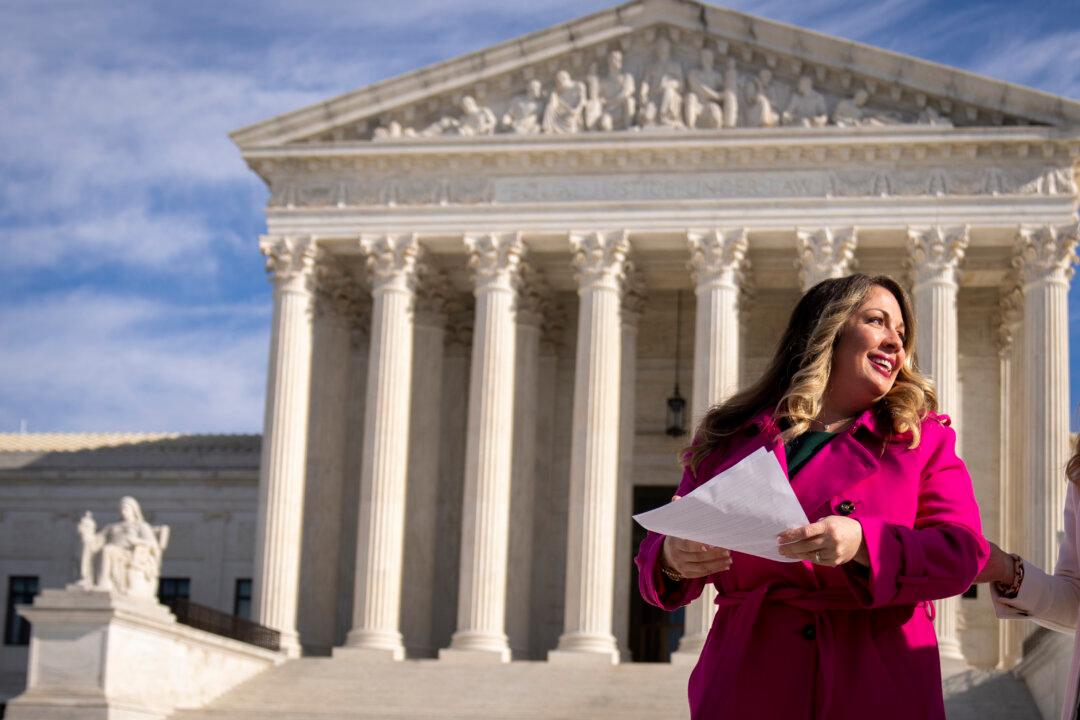On June 30, the United States Supreme Court ruled in favor of the Colorado Christian website designer who refused to create a website promoting same-sex weddings.
As The Epoch Times reported on Sept. 27, 2021, Lorie Smith—the owner of a Colorado-based web design company called 303 Creative—had asked the justices to overturn a decision of the 10th Circuit Court of Appeals in Denver. They accepted. Smith was represented by Alliance Defending Freedom (ADF), an Arizona-based public interest law firm specializing in First Amendment and religious freedom litigation.





